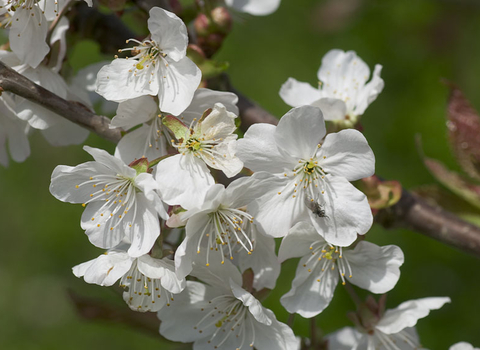
©northeastwildlife.co.uk
Wild cherry
The mass of white, frothy blossom on a wild cherry is a sight to behold. Planted as an ornamental tree, it also grows wild in woods and hedges. Its red fruits are the edible cherries we know and love.
Scientific name
Prunus aviumWhen to see
January to DecemberTop facts
About
The wild cherry is a small tree of woodland edges and hedgerows, and is also frequently planted. White flowers appear early in spring and ripen to red fruits in summer - the cherries! These are loved by birds and mammals (who distribute the seeds), and are also used by us for making cherry brandy. The timber of Wild cherry is highly prized for furniture-making and wood-turning due to its rich, red-brown colour.What to look for
The wild cherry displays a mass of white flowers, followed by its familiar fruit - red cherries. It has oval leaves and red, papery bark that peels in horizontal bands.Where to find
Widespread.Did you know?
Many related species and hybrids of the wild cherry are planted in parks and gardens for their decorative pink and white flowers, and for their delicious fruit. Japan is famous for its huge number of cherry trees - the blossom is a national symbol and many make the trip to see it.Our native tree species provide important links in the food chain for many animals, as well as areas for shelter and nesting. The Wildlife Trusts recognise the importance of healthy habitats to support all kinds of species throughout the food chain, so look after many nature reserves for the benefit of wildlife.
